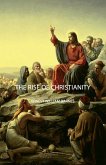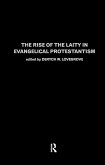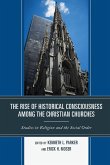At the beginning of the twentieth century, Charismatic Christians accounted for less than 1 percent of the world Christian community. In less than one hundred years, their ranks have grown enormously until today they make up more than 25 percent of all Christians - 400 million believers worldwide. By the year 2000, this figure is estimated to expand to over 30 percent. Ian Cotton's vivid portrayal of the international dimensions of this new Christian religious revival captures a phenomenon that till recently was thought to be almost entirely American. New Christianity now embraces every continent, reaching from Canada to Zaire, from Brazil to Korea and Australia, even to mainland China. Cotton traces its roots to the sixties' counterculture and points out interesting connections with broader twentieth-century trends like the rise of postindustrial "irrationalism", the New Age and Green movements, the information revolution, social and political decentralization, and the pervasive malaise of mass uncertainty. For American readers who think evangelism is just another name for right-wing conservatism, Cotton describes the new, left-of-center evangelism that is invading America from Europe, spearheaded by explosively growing global organizations like the March For Jesus. One in three white American Evangelicals, for instance, votes Democratic, and the U.S. leader of March For Jesus has unabashedly declared himself to be a Clinton fan. Cotton also explores the psychology of converts, including recent neurological research that links religious conversions not just to personal or collective insecurity, but to specific operations of the brain. In a visit to Dr. Michael Persinger's neurosciencelaboratory at Laurentian University, the author submits to brain experiments designed to induce mystical experiences through electrical stimulation of the temporal lobes - with fascinating results.
Hinweis: Dieser Artikel kann nur an eine deutsche Lieferadresse ausgeliefert werden.
Hinweis: Dieser Artikel kann nur an eine deutsche Lieferadresse ausgeliefert werden.








